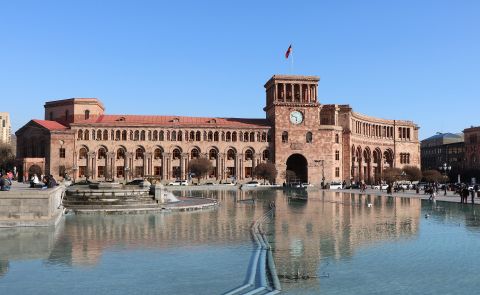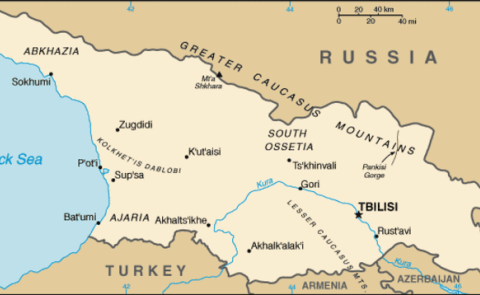
Recent economic developments in Georgia

Programs worth USD 509 million have been approved by the World Bank for Georgia
The World Bank authorised a USD 400 million Human Capital Program for Georgia, as well as a USD 109 million Kakheti Connectivity Improvement Project.
The bank claimed in a statement that the USD 400 million loan would be its largest cross-sectoral investment in Georgia in the 30 years of their relationship.
According to the World Bank, the Human Capital Program intends to help Georgian individuals get "fair and equitable access to high-quality education, better targeted social benefits, and robust preventative healthcare with lower treatment and pharmaceutical costs" along with better preparing and linking the jobless to work possibilities.
According to the release, the funding would also assist the Georgian government in reforming health service buying and pricing, improving the efficiency of the pharmaceutical sector, and bolstering primary health and hospital care in the nation.
According to the World Bank, the USD 109 million project would assist connect Georgia's easternmost Kakheti province with Tbilisi, the capital, and the country's highway network.
The Bank will fund the development of a 17-kilometer four-lane, access-controlled highway segment along the Tbilisi-Bakurtsikhe-Lagodekhi highway corridor between Sagarejo and Badiauri.
According to the World Bank, the Georgian government would create lanes on the highway stretch from Tbilisi, the capital, to Sagarejo Municipality, while the remaining corridor from village Badiauri to Lagodekhi Municipality will be developed later.
Georgia doubles FDI to $1.153 bln in 2021
Last year, foreign direct investments (FDI) in Georgia more than quadrupled to $1.153 billion, as investors from across the world began to spend more money as the economy recovered after the bulk of pandemic restrictions were lifted.
Last year, the country saw economic development as the bulk of the limitations placed to combat the coronavirus epidemic were lifted, companies reopened, and visitors began to return cautiously. After decreasing by 6.1%, the year before, the gross domestic product (GDP) increased by 10.6% in 2021.
Georgia's tourism-dependent economy has been particularly badly impacted by the COVID crisis, and it lacks the resource extraction or manufacturing basis that has helped other ex-Soviet republics weather the storm. FDI is a significant source of economic growth in the 3.7 million-strong South Caucasus republic.
According to the country's National Statistics Office, FDI decreased to $132.5 million in the first quarter of 2021 from $171 million in the same quarter of 2020, increased to $302.5 million in the second quarter from $240.3 million in 2021, increased to $303.8 million in the third quarter from $294.8 million, and increased to $411.3 million in the fourth quarter from a contraction of $134.2 million in the last quarter of 2020.
Growth in FDI was described by the office in terms of growth in all three major directions: equity capital, debt commitments, and reinvestment.
Last year, the UK topped the list of investors with $596.6 million, followed by the Netherlands ($125.9 million) and the Czech Republic ($81.8 million).
Georgia expects to boost its economy by 6% this year and attract more foreign direct investment.
Georgia's GDP is expected to expand 5.8% in 2022, according to the International Monetary Fund (IMF). The IMF warned in October that considerable risks to Georgia's economic recovery persisted, including delayed immunisation.
Georgia's economy is likely to grow by 5.5% in 2022, according to the World Bank's latest prediction, as the "economy is projected to relax toward its potential growth rate in 2022 and 2023 under tighter fiscal policies."
Georgia's long-term foreign-currency Issuer Default Rating (IDR) was confirmed at 'BB' with a Stable outlook by Fitch Ratings in February.
Fitch expects Georgia's GDP to grow by 5.5% in 2022 and 5.3% in 2023, respectively, above the potential of 4.0-4.5%. Private consumption and investment will benefit from increased financial inflows. The recovery in the tourist industry is expected to accelerate, with Fitch projecting tourism receipts to reach 80% of 2019 levels in 2022, up from 38.1% in 2021.
"The downside risks to our GDP forecast persist. The epidemic is still shrouded in mystery.” In a study, Fitch wrote, "Georgia is presently witnessing a major fourth wave of COVID-19 infections, while its vaccination rate remains low."
See Also


BP Plans Second Deep-Gas Production Well at Azeri-Chirag-Gunashli

Separatist Abkhazia and Russia Reaffirm Strategic Partnership in Moscow Meeting

Weekly Brief on Military Situation in South Caucasus Countries (June 2–8, 2025)

Armenia–Russia Trade Hits $12 Billion in 2024, Up 60%

